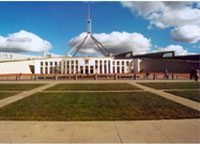|
||||||||||||||||||||||||||
| Politics - POLSB23428 | ||||||||||||||||||||||||||
This plan is only available to students commencing from 2009
Politics is an integral part of human civilisation. The systematic study of politics has been conducted for some 2,500 years, since the ancient Greeks. It thus predates the other social sciences – economics, sociology, anthropology, and psychology – by a few millennia. Aristotle called politics the “master science”, because unless people could live together and flourish all other human pursuits were futile. Politics at UNSW involves the study of governments, political systems, processes and behaviour, public policies, the basis of political relationships such as political authority and political obligation; political values such as liberty, equality, and justice; and normative questions of how human beings should live together. A major in Politics thus treats many of the headline issues and big questions governments, societies, and citizens face. The Politics major is closely connected to International Relations (itself a field of Politics), as well as to the disciplines of Sociology, Economics, History, Philosophy, and Law. UNSW has research strengths in the disciplinary fields of Australian Politics, Comparative/World Politics, and Political Theory. Students graduating from UNSW with a Minor in Politics should be able to demonstrate: • an ability to place questions of political order, political values, and political decision-making at the centre of analysis • a knowledge of the key concepts, main approaches and alternative methods employed in the study of politics • an understanding of what political knowledge is and how it is acquired • an appreciation of the contested nature and the problematic character of political inquiry Students will also develop discipline-specific and generic social science skills, including being able to: • respond to a piece of writing on Politics, identifying its strengths and weaknesses; • distinguish among theoretical, conceptual, and empirical lines of enquiry; • contribute to the discussion of political and ethical issues in a reasoned manner; • undertake research, using both traditional, and technological sources; • communicate ideas fluently, develop a reasoned argument, synthesise relevant information and exercise critical judgement; • write in a style used within this discipline; • reflect on their own learning and seek to make use of constructive feedback. A student who wishes to gain a Minor in Politics must complete 36 units of credit including 12 uoc at Level 1, at least 12 uoc at Level 2 and at least 12 uoc at Level 3.
Level 1
Students who wish to complete a Major or Minor sequence in Politics are encouraged to take the following course as an elective:
Level 2
Level 2 offers electives from the three streams offered within the major: Australian Politics, World Politics, and Political Theory.
Level 3
Level 3 courses treat more specialised topics within the three streams and are taught in research-intensive seminars.
|
||||||||||||||||||||||||||



